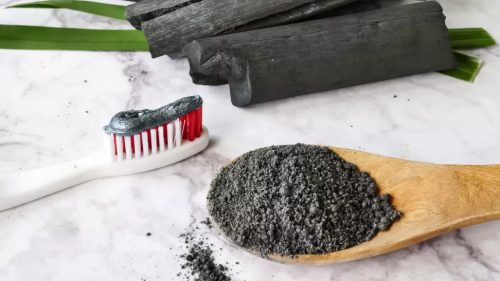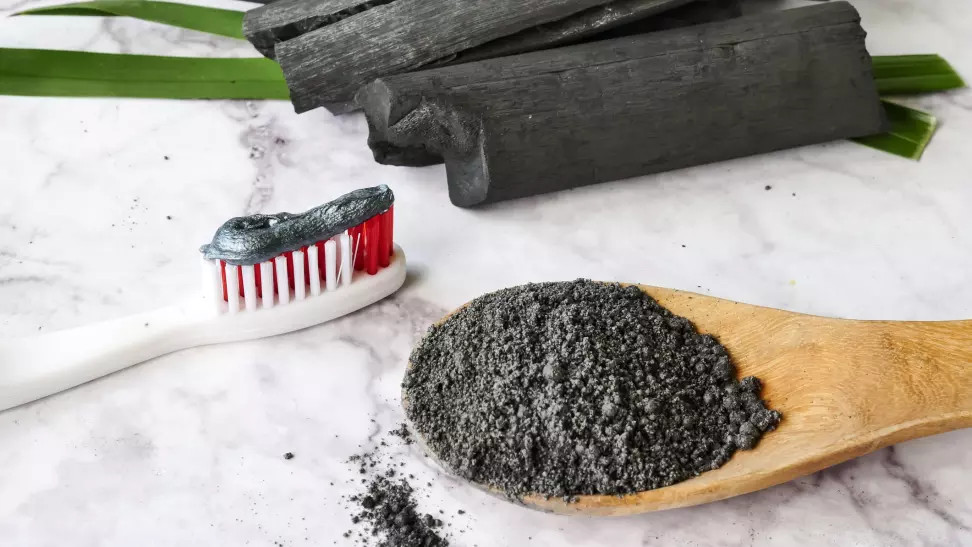
Is “Infused with Charcoal” a Marketing Gimmick?
The short answer is ‘Yes, it is’ and a really effective one. The most obvious example of marketing gone awry are the so called “charcoal infused bristles.” According to activated charcoal proponents, the ingredients should sit on the teeth’s surface for a while to be able to properly bind onto the toxins in your mouth. Bristles enriched with charcoal are just marketing fluff because there is very little charcoal used in such a product and the ingredient is usually infused in the bristles’ body, which renders is ineffective one you put it on your teeth.
 In addition, bristles infused with charcoal will likely sit in your bathroom cabinet for several months at a time, which means that the charcoal has plenty of time to absorb other toxins in that room. And last but not least, activated charcoal needs some time to rest on your teeth for it to properly absorb the dirt and toxins there. When using a charcoal-infused bristle, the ingredient touches various portions of your teeth only for a fraction of a second, which makes it impossible for the ingredient to actually benefit your teeth. Our professionals also warn that these types of oral care products might do more harm than good as they are stiffer than regular bristles, which ups the risk of gum damage.
In addition, bristles infused with charcoal will likely sit in your bathroom cabinet for several months at a time, which means that the charcoal has plenty of time to absorb other toxins in that room. And last but not least, activated charcoal needs some time to rest on your teeth for it to properly absorb the dirt and toxins there. When using a charcoal-infused bristle, the ingredient touches various portions of your teeth only for a fraction of a second, which makes it impossible for the ingredient to actually benefit your teeth. Our professionals also warn that these types of oral care products might do more harm than good as they are stiffer than regular bristles, which ups the risk of gum damage.
However, despite the evidence many people mindlessly buy into these types of products as long as “infused with charcoal” is written on the package and companies continue to produce these products so that they can increase the price of their otherwise regular products. Plus, because of our obsession with white teeth, these marketing tricks really work.
How Can I Keep My Teeth White and Healthy?
Our experts warn that white teeth don’t necessarily mean strong teeth. Genetics play a huge role in this issue so, ironically, a person with yellow teeth might have stronger teeth than their counterpart obsessed with having a pearly white smile. It is more important for your teeth to be disease- and cavity-free than being white. So, we encourage you never to sacrifice your teeth or gums’ health for a commercial-worthy white teeth.
Also, ensure that you follow the tried-and-tested oral care routine that we recommend to all of our customers: brush for a couple of minutes a day in the morning and in the evening, floss daily, change your toothbrush as recommended, and visit a dental care professional every six months.
Additionally, be aware of the foods and beverages that might stain your teeth as even some of the best whitening treatments may start to lose their effect within as little as one month. If you manage to steer clear of foods and drinks with tooth-staining potential, such as sweets, berries, coffee, red wine, and black tea, you can pay your dentist a visit for another treatment after a year.
If you’re on the fence about using activated charcoal in your toothbrush, consult with your dentist first for at least two reasons. First, the ingredient’s benefits haven’t been proven by science, yet and, second, charcoal might be too abrasive for your teeth natural enamel layer. That is why modern toothpastes don’t contain any harsh ingredients as they are supposed to gently cleanse your teeth and gums without harming them in the process.
Most dental care professionals believe that highly abrasive ingredients have no place in toothpaste or on people’s teeth, which might be why manufacturers no longer add bark and oyster shells to their products. The jury is still out on activated charcoal, though, so we cannot recommend it wholeheartedly. Being pro-active with your oral hygiene can get you a lot farer than testing new and potentially enamel-damaging ingredients on your teeth.

























